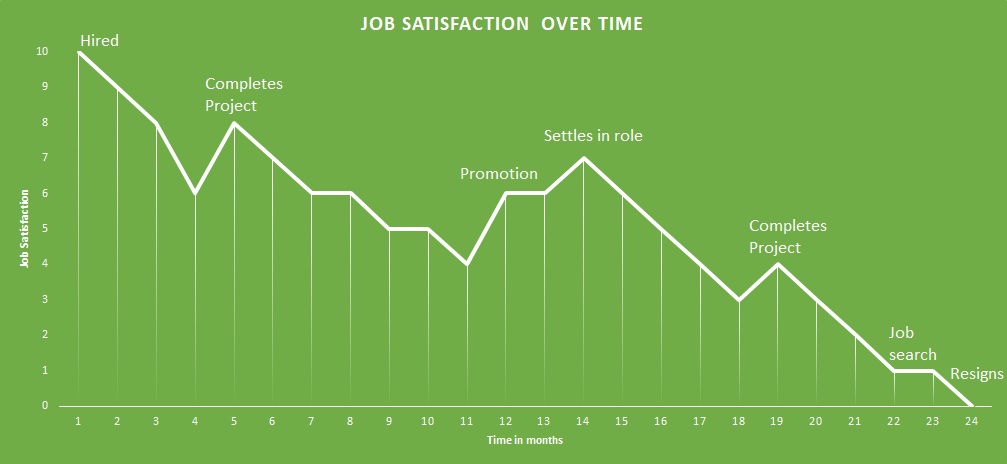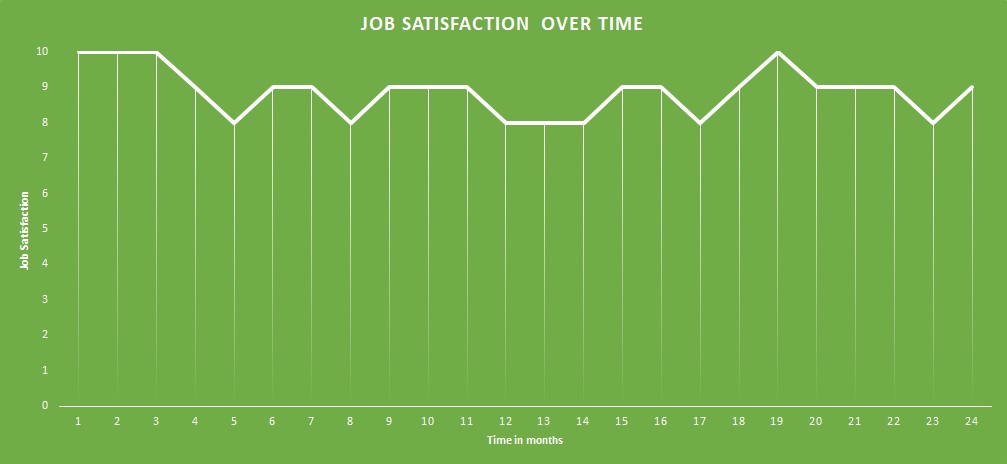You may have had the experience before that the company you work for sees you as a resource. A number on a spreadsheet. Did you feel motivated to work there? Did you stay there for a long time? Did you feel loyalty? Probably not…
I want to float a really bad analogue but hopefully it will make my point. Petrol (or diesel/electricity) is a resource, employees are more like cars.
The Analogue
Imagine when you start a new job you are like a car they drive for work. The company hires you with the tank full. This is usually true in my experience as you are excited for the new opportunity and eager to do your best. One more analogue with the car. Job satisfaction (emotional reward, compensation, etc.) determines the mileage of the car.
As you work you slowly use up the petrol in the tank. What are you burning? New things to learn, new people to meet, energy on things that don't engage, belief in direction, etc. Name the things that make a job emotionally rewarding.
Driver: The broke student
Were you ever a broke student with a car that was likely to break down if it didn't run out of petrol first? I was. I would fill up the tank with just enough petrol to get me to my next destination.

In this model moments come along that refill the tank a little but they are blips in the downward trend. The consumption of the resource is still greater than the sum of the top-ups. Completion of big projects, moves to a new challenge, and promotions, all add some fuel but the problem is these are not sustainable as big refuels that come along. There are so many projects, moves, and promotions available and what if there are just a few failures? These could easily wipe out any gains.
Driver: The responsible car owner
My dad takes care of his cars. My brother takes care of his cars. I don't own a car anymore as here in The Netherlands I don't find it necessary. When I got my first car though my dad used to tell me to fill it up often so that the fuel tank would not rust. Easier said than done as a poor student but the lesson stuck at least.

The lesson here, and the whole point of this flaky analogue is that if you want to keep employees, they need to be topped up daily. Coming to work needs to be what tops off the fuel tank. There needs to be creative freedom. The people need to be smart and fun. The environment needs to foster learning and growth. The problems need to be challenging but solvable.
Conclusion
People apparently quit managers not companies. While I think this is true I don't think it is always personal. The bottom line is management (from CEO down) is custodian of the environment and culture. Although everyone is responsible to a certain extent, it is management's job to ensure it is heading in the right direction and to step in and take action if it is not.
DON'T let frustration linger with no solution
DO empower people to solve their own problems
DON'T think of employees as resources that just churn out value with no input
DO set aside time and encourage learning and personal growth
DON'T tell people how to do their job
DO give a vision for what the business wants to achieve strategically
Perks, events, money. These are not what keep people happy. If people are complaining about these things then chances are the culture is so bad that that is the only thing your employees have to hold on to. They are symptoms and make sure you are ignoring them only if you are addressing their more pressing cultural and environmental issues.
At the same time, find out what employees value already. It is usually easier to do more of something beneficial than stop the things that kill a healthy culture. It doesn't mean the bad doesn't need to be addressed but it will make the culture more robust and build trust.
Do you have your own DOs or DON'Ts for building or tearing down company culture? I would love to hear them.
Credits
- Social image by Alex Reed
- Header by Igor Ovsyannykov